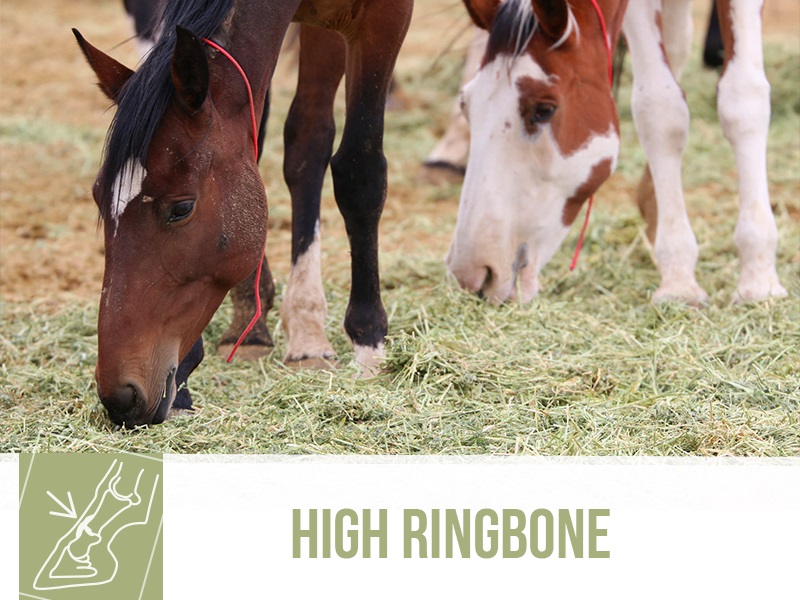
High Ringbone

Owners of work horses know the name ´ringbone` well. High ringbone is the common name given to a progressive condition called osteoarthritis of the proximal interphalangeal joint - woah that is a big name! Good news is, it's just a real long way of saying it's a disease of the pastern joint.
Bad news is, it can cause severe lameness and might eliminate a horse from competing or from strenuous work life if not well managed. This condition can happen for several reasons, for instance overuse, a singular trauma episode or even just due to normal use.
The disease process of the osteoarthritis involves the loss of cartilage and the formation of new bone around the joint, a process that is very painful. In severe cases, it can even make a visible enlargement that encircles the joint which earned it the name "Ringbone".
Unfortunately, this disease can be progressive and what starts out as a subtle lameness can become much more pronounced with time as there is greater and greater destruction of the normal joint. The loss of cartilage means that bones will be grinding against each other in each and every movement of that limb and if it sounds painful to you, you got it right, it really is. Added to that, there is creation of bone in tissues and spaces where bone should not be plus inflammation.
All of this will contribute to progressive loss of function and lameness due to severe pain. It's sounding pretty gloomy but there are many therapeutic options available and the condition can be managed. Of course, much of the prognosis is tied up with whatever cause osteoarthritis to start in the first place but talk to your vet about all your options and they'll help you make the right choice for your riding buddy.
Image: "Oregon's Wild Horse Corral Facility" by BLMOregon was built upon is licensed under CC BY 2.0
Would you like to know more about horses? Check our Equine Courses:
Equine courses
Published: 10 Mar 2017
Read the previous article: Clumsy but capable! Cerebellar Hypoplasia in cats

